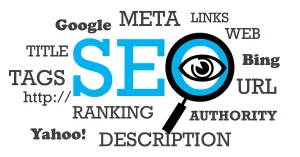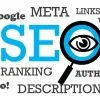Cloud accounting is often touted as a highly beneficial tool for modern accountants. Many commentators believe Cloud accounting is the future of the industry. With 94% of public accounting practices adopting Cloud technology, and 67% of accountants preferring Cloud accounting over other traditional systems, it seems an industry-wide shift is already in progress.
However, many accountants still feel that adopting Cloud accounting is opening the door for their own replacement. Data collection, entry, and analysis are all facets of accounting that technology can handle without human intervention. According to McKinsey, it’s estimated that up to 800 million of these data-related jobs could be automated worldwide by 2030.
Due to this, accountants find themselves in a tricky position. Adopting Cloud accounting and other automation technologies will allow them to provide improved service to clients. But, the threat of full automation is ever-present, especially as these technologies continue to improve. In this article, we’ll explore Cloud accounting and exactly how accountants can use it to their advantage, improve their skills and services, and stay relevant in a rapidly changing industry.
What Is The Cloud?
There’s a long-running joke that the way the Cloud works is something of a mystery. Actually, the Cloud is a surprisingly simple concept that works incredibly efficiently. In basic terms, companies such as Google, Apple, and Microsoft, to name only a few, own and maintain remote server networks hosted online. When you store something in the Cloud, it is saved to the Cloud’s servers and accessed over the Internet, rather than on your computer or a local server.
Cloud service providers are responsible for these storage servers, which they regularly maintain and backup to ensure security through encryption. All users need to do is purchase ‘space’ in the Cloud’s servers, where they can then upload and store their relevant data and documents, and remotely run applications. Many companies prefer the Cloud over local servers as it’s completely scalable, removing the costs associated with setting up local servers and data-storage infrastructure.
What Can Cloud Accounting Software Do?
Cloud accounting software leverages Cloud servers in a variety of helpful ways for accountants. Here are a few of the ways Cloud accounting software makes use of the Cloud:
Data Storage - For many people, this is the main function of the Cloud, and it’s no different when it comes to Cloud accounting. Accountants can store sensitive financial data securely, without the risk of hardware failure that comes with saving data locally. This also means accountants can keep their internal computers better organized.
Remote Access - As long as you have an internet connection and the appropriate logins, you can instantly access any of your data that is stored in the Cloud. For accountants, this means you can collaborate with clients and other key stakeholders, as well as access your work whenever and wherever you might need it.
Efficient Updates - Any number of colleagues can work on a document or dataset that is stored in the Cloud using Cloud accounting technology. This makes collaboration much easier and less time-consuming, while also improving client communication. Every version of the document is updated when a change is made, providing real-time updates that you can showcase to clients.
Integration - Cloud accounting software can automatically receive and retrieve data through integration with other technologies, such as payment gateways, payroll data and collaborative CRM software. Since Cloud accounting software can input this data without intervention from accountants, it reduces the risk of data entry errors, ensuring accuracy and saving accountants a lot of time and stress.
Full Scalability - As your practice grows, so can the capabilities of your chosen Cloud accounting software. This scalability also means you can change your Cloud accounting subscriptions based on things like fluctuation in demand from clients throughout the year. For accountants, this means you only pay for what you and your clients need, making Cloud accounting very cost-effective.
Data Analysis - Finally, one of the most desired functions of Cloud accounting for modern accountants is its capabilities for data analysis and reporting. The software can generate reports from entered data, offering valuable insights into a client’s financial situation. Using these reports, accountants can offer up-to-date advice.
What Are the Benefits of Cloud Accounting?
Now that you know a bit more about what Cloud accounting software can offer, let’s take a look at some of the advantages that come about as a result of these functions.
- Enhanced Security
Many accountants believe the Cloud is subject to a higher security threat than internal servers. This is not the case, as data that is stored in the Cloud is encrypted. This means it’s protected from attacks by malware, hackers, and other organizations. In addition to this, Cloud servers are regularly backed-up, removing the risk of losing important data. Any downtime that affects local servers or hardware won’t affect the safety of your client’s data, and you can keep working on the data you need without interruption.
- Resource Management
Cloud accounting software’s automation capabilities mean time-consuming tasks such as data entry and processing invoices are now handled by the software, instead of accountants. This frees up accountants to focus on other, more important tasks, or take on more clients at a time. As well as time, Cloud accounting software helps save money for accounting practices by reducing the need for local IT support and infrastructure, and by doing away with licensing agreements for traditional accounting systems.
- Increased Offerings
As Cloud accounting software has several functions, including data analysis and reporting, you can add these services to your client offerings and showcase them in your marketing. Potential clients know their financial information will be stored safely, inputted accurately, accessed efficiently, and analyzed using leading industry techniques. As it saves time, Cloud accounting software provides experienced accountants with the opportunity to take a hands-on approach to client relations. Speaking of…
- Improved Client Relations
By offering the opportunity for remote data access, Cloud accounting gives accounting practices everything they need to offer client-facing dashboards. These datasets include everything a client needs to know about their finances and the tasks their accountant is currently working on. They provide greater transparency and understanding, as well as real-time updates between accountants and clients. This collaborative effort also means accountants can spend more time meeting with their clients, discussing options, and providing financial advice.
- Competitive Advantage
As we’ve already seen, the vast majority of accountants currently utilize Cloud accounting software to their, and their clients, advantage. Choosing to avoid adopting Cloud accounting in your practice may mean you get left behind your competition. However, learning the ins and outs of Cloud accounting software now will give you a greater understanding of exactly how it can benefit you and your clients, and where you should be putting it to use. This way, when further updates to Cloud accounting software are released, you’ll be among the first to use them, giving you a clear advantage over your competition.
How Accountants Can Use Cloud Accounting to Their Advantage
Cloud accounting brings a variety of benefits to you, your practice, and the accounting industry as a whole. However, these benefits have led to a few myths among accountants that Cloud accounting software may be a better choice for firms than humans. These myths are reinforced by studies like those by Oxford University, which suggest accountants have a 95% chance of losing their jobs to robots.
The trepidation surrounding Cloud accounting stems from a fear of digitization in many industries, with a third of accountants surveyed by CV-Library believing their job is threatened by technology. However, in the same survey, 95% of accountants believe being ‘tech-savvy’ increased their employability. All automation technology will need experts to monitor and maintain it. So, familiarizing yourself with Cloud accounting can help expand your skillset as an accountant, as you’ll know how best to use the software to support your work.
Cloud accounting can help you greatly reduce the time you spend on repetitive and low-impact tasks, but clients will always prefer the experience and instincts of their accounts over those of a computer. While the skillsets of accountants might change, the need for a human touch in the profession will never disappear. With so many accounting firms choosing to incorporate Cloud accounting software into their operations, a refusal to embrace these emerging technologies may mean your practice is left behind.
In Conclusion…
Cloud accounting software and other accounting technologies provide a range of benefits for accountants. Utilizing the Cloud improves workflow, resource management, and data security, and allows you to collaborate easily, work remotely, and offer clients a range of improved services.
While there are concerns about job displacement due to digitization, as an accountant you can rest assured that if you use Cloud accounting software to your advantage, it will expand your skillset and increase your employability.
In general, an embrace of Cloud accounting software works in support of your practice, not in its place. This means you can spend time focusing on high-value tasks, stay ahead of industry changes, and provide a superlative service.
Sources
- https://resources.flexera.com/web/media/documents/rightscale-2019-state-of-the-cloud-report-from-flexera.pdf
- https://www.flexi.com/cloud-accounting-statistics/
- https://www.mckinsey.com/featured-insights/future-of-work/jobs-lost-jobs-gained-what-the-future-of-work-will-mean-for-jobs-skills-and-wages
- https://azure.microsoft.com/en-us/resources/cloud-computing-dictionary/what-is-the-cloud
- https://edu.gcfglobal.org/en/computerbasics/understanding-the-cloud/1/
- https://www.freshbooks.com/hub/accounting/cloud-accounting-software
- https://gocardless.com/en-us/guides/posts/what-is-cloud-accounting-and-how-does-it-work/
- https://www.xero.com/us/guides/small-business-cloud-accounting/
- https://www.netsuite.com/portal/resource/articles/accounting/cloud-accounting-benefits.shtml
- https://www.getcanopy.com/blog/tax-professionals-using-cloud
- https://onlinedegrees.und.edu/blog/accountants-cloud-computing-advancements/
- https://www.caseware.com/us/blog/5-reasons-accountants-embrace-automation-not-fear
- https://www.accountancydaily.co/third-accountants-feel-jobs-threatened-technology
- https://www.accountantsdaily.com.au/technology/11042-is-new-technology-a-threat-to-accounting





















Add comment